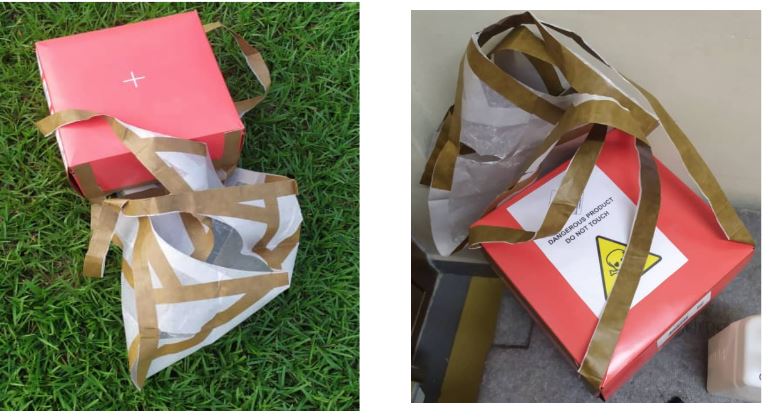Expedited diagnoses of suspected COVID-19 cases became urgent in the wake of the fast spread of the disease.
One of Ghana’s biggest testing centers, the Kumasi Centre for Collaborative Research (KCCR) has been receiving suspected samples through drones, making the country the first to adopt this technology for this purpose.
"We were all very excited to see the very first sample drop. Not because of the drone but the fact that we were contributing to saving lives,” Dr. Augustina Sylverken, a virologist at the Kumasi Centre for Collaborative Research in Kumasi, Ghana couldn’t help but let her inner child flair as she happily walked to pick her first delivery from the Sekyere Central District of the Ashanti Region of Ghana in April 2022.
The drone operators, Zipline Ghana, had been there to identify a drop off zone, where Dr. Sylverken and her colleagues had gathered in anticipation.
The package containing suspected COVID-19 samples, as usual, bore the skull and crossbones symbol, indicative of a hazardous content. But Dr. Sylverken didn’t hesitate to bring it to the lab to explore the samples and prepare them for analysis, since she’s been made aware of the biosafety processes the samples have undergone.
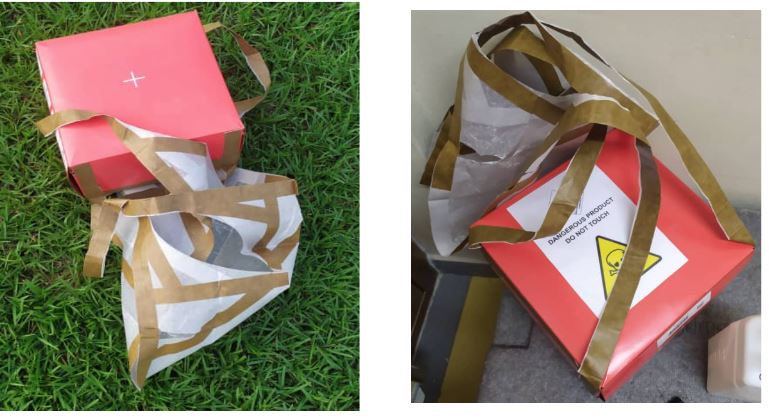
The World Health Organization in February 2020 approved the use of the Reverse Transcription Polymerase Chain Reaction (RT-PCR) test for COVID-19 suspected cases.
The polymerase chain reaction (PCR) test for COVID-19 analyzes for instance, a person’s upper respiratory specimen.
The test searches for genetic material called Ribonucleic acid or RNA of SARS-CoV-2, the virus that causes COVID-19.
Certain viruses like SARS-CoV-2 are made up of RNA rather than DNA.
Therefore, the RNA must be changed into DNA. This process is called reverse transcription PCR (rtPCR).
An enzyme called polymerase is added to the sample. This causes the sample to produce copies. The copying process is repeated multiple times and after about an hour, billions of copies are made. If a virus is found, it will show on the machine.
The KCCR and the Noguchi Memorial Institute for Medical Research were the only two institutions in Ghana which could carry out this test.
With diseases like COVID-19, enhanced testing is crucial for control.
Therefore, the suspected samples from any part of the country were bound for either KCCR in Kumasi or Noguchi Memorial Institute for Medical Research located down South in Accra.
Dr. Sylverken observes the situation stirs uneasiness among patients and healthcare workers.
“With infectious agents, typically of pandemic and epidemic potential, it was important for swift testing in order to find ways to bring them under control.
“It increased patient anxiety, since they had to wait for the results, it had some impact on contact tracing and health care workers who will be anxiously waiting for the report,” she noted.
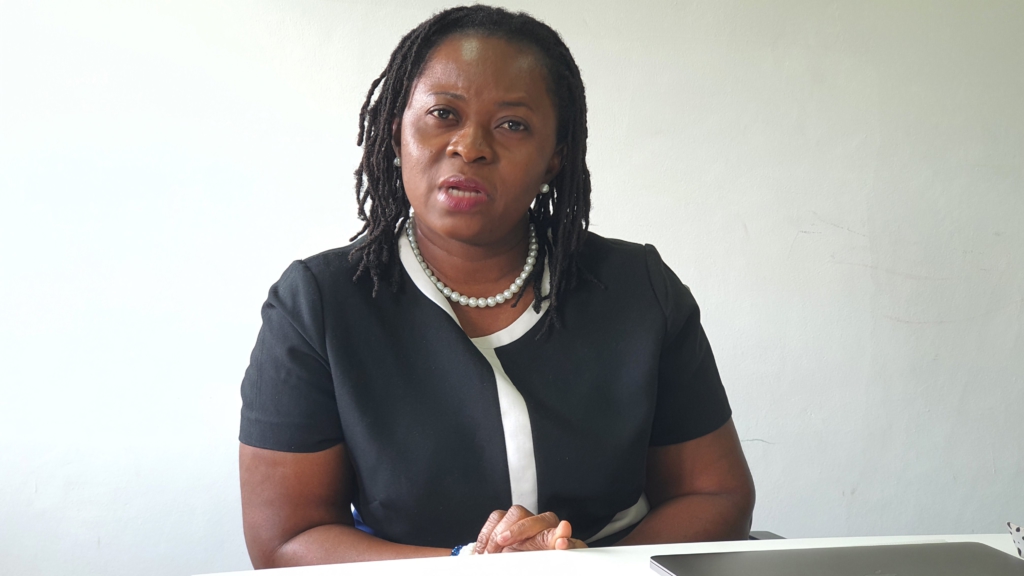
There was therefore the need to leverage the use of the Zipline drone, which had already been approved for medical supplies such as blood and vaccines.
“Already, the drones have been employed in many medical deliveries, and we wanted to try it out with COVID-19 suspected samples,” she said.
Farewell to delays
Though Ghana is acknowledged as having one of the best road networks in the sub-region, poor nature of the roads in many rural communities coupled with testing centres located tens of kilometres away, meant that the country will be handicapped in its response.
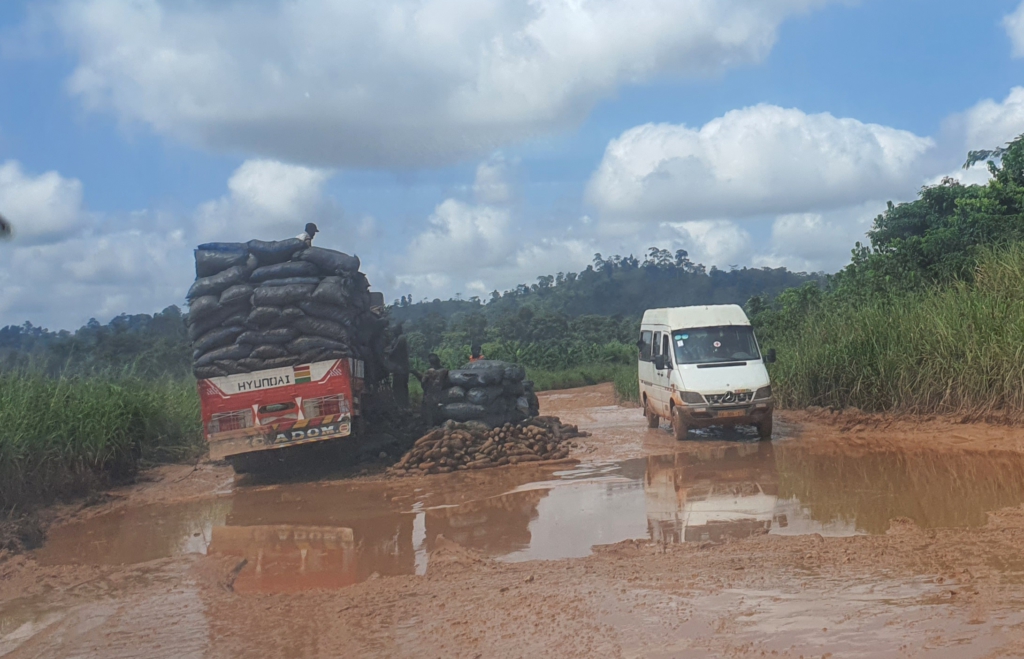
Earlier, the Centre used to receive samples via road- using motors, cars, and courier services.
Dr. Sylverken says beyond the delays, of several hours and sometimes days, it leaves many, especially passengers at risk of disease exposure.
With the drone, she says the centre receives the samples within forty minutes!
“Sometimes, they resort to courier services, motorbikes, sometimes, they keep the samples, and bundle them together for someone coming to Kumasi. If you have people in the car, that can be dangerous.
“With the drone, as soon as samples get to them, they package samples and send them to us,” she said.
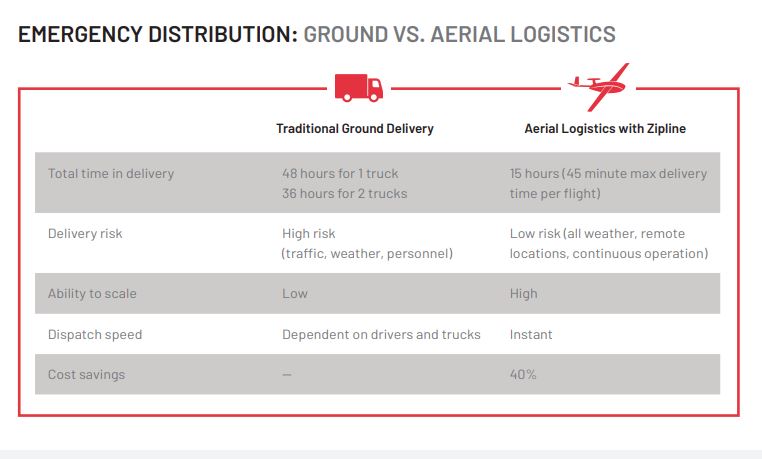
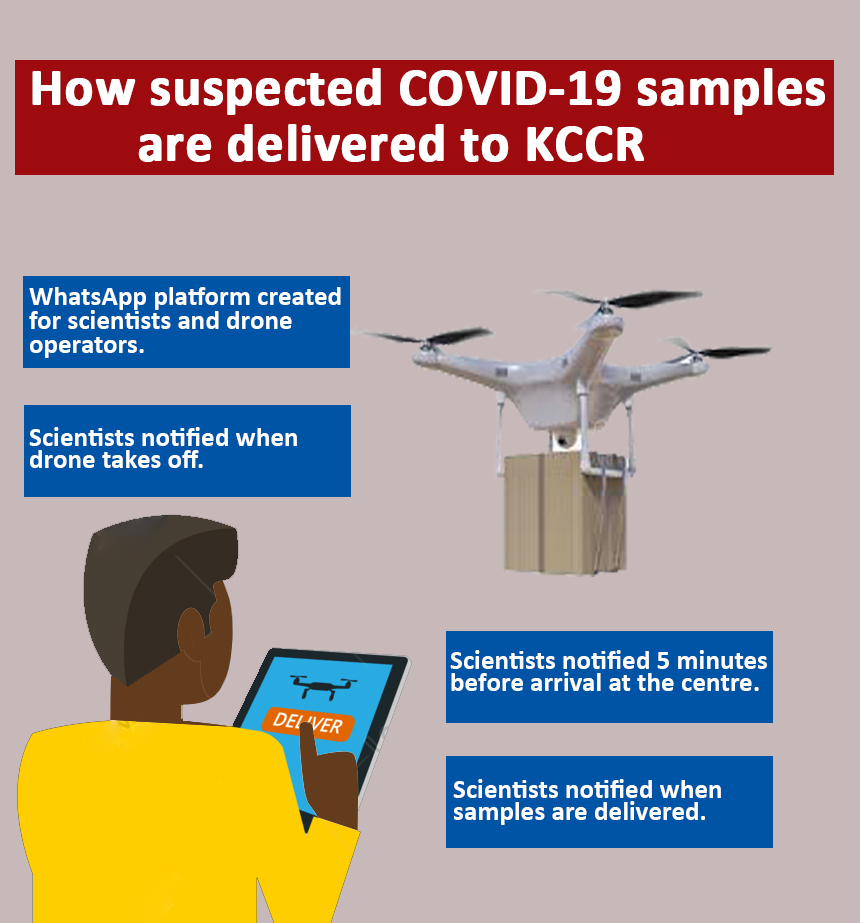
Maximizing reach
The Community Lead in charge of Operations at the Zipline Center at Walewale in the North East Region of Ghana, Dr. Simon Batamya Aseno, in an interview with GBC news, disclosed that the Center has delivered more than 44,000 medical products, 600 blood products and 61,000 doses of essential vaccines to 374 health facilities since its operation in 2019.
Zipline Ghana now has distribution centres in Omenako in the Eastern Region, Mampong in the Ashanti Region and Sefwi-Wiaso in the Western region.
Zipline Ghana officially commissioned the Vobsi Centre, located near Walewale in the West Mamprusi Municipality of the North East Region.
The Centre, which is the largest distribution centre, supplies medical packages to health facilities in four regions in the Northern sector namely; Northern, North East, Savannah and Upper East.
Though it’s been touted to reach out to about 374 health facilities of which 95 % are in the rural and hard-to-reach areas, there are still many areas to be reached.
Dr. Sylverken believes there should be more investment into the setting up of these centres.
“Many of these health centres are located far away and having more centres will help very much,” she urged.
Dr. Sylverken revealed the KCCR has recently been receiving monkeypox suspected samples through the drones.
The drone intervention continues to give hope to many health centres in Ghana. Zipline’s drone delivery service in Ghana has been essential in addressing many health issues bedeviling the nation.
There is therefore the need to incorporate it into Ghana’s national health care supply chain, particularly in areas of pandemic control and management.
Latest Stories
-
24-Hour Economy and Accelerated Export Development Programme
48 seconds -
NRSA sanctions 9 transport companies and unions
10 minutes -
Lead poisoning threat alarms health experts and environmental advocates
18 minutes -
We will reduce 2 major expenditure items to improve financial position – BoG assures
20 minutes -
Details of Energy Sector Levies (Amendment) Bill, 2025
22 minutes -
Corrupt chiefs, politicians, others fuelling galamsey in Ghana – Report
30 minutes -
Dumsor Levy: A necessary intervention for Ghana’s energy future
35 minutes -
GPRTU threatens nationwide strike over new GH¢1 fuel levy
38 minutes -
High Inflows from raw natural resources — where is it all leading Ghana, Our Beloved Country?
40 minutes -
DR Congo bans reporting on ex-President Kabila
55 minutes -
We remain policy solvent despite recording GH¢9.49bn Operating Loss in 2024 – BoG
57 minutes -
Dr. Abubakari Sidick Ahmed to be honoured with grand retirement celebration
58 minutes -
Galamsey: Illegal fuel supply point uncovered in forest reserve; Chinese nationals arrested
60 minutes -
Mahama launches ‘One Tree per Child’ initiative to combat environmental degradation
1 hour -
Endurance Grand calls out the TGMAs for not recognising dancers in Ghana
1 hour

